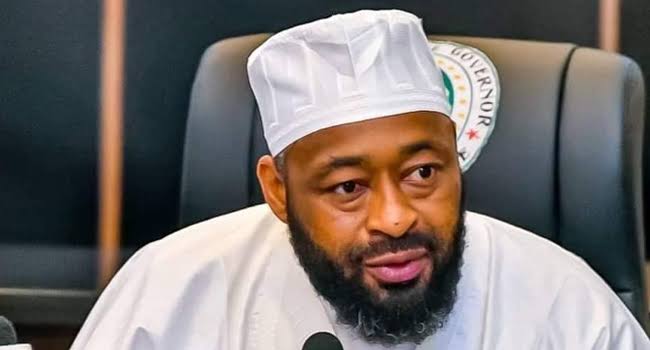Governor Mohammed Umaru Bago has granted an unconditional state pardon to 11 individuals previously sentenced to death, marking a significant step toward reconciliation and peacebuilding in the region. The announcement, made by the state’s Attorney General and Commissioner for Justice, Barrister Nasiru Muhammad Muazu, underscores the governor’s commitment to fostering harmony in communities torn apart by conflict. This act of clemency, executed under the powers vested in the governor by Section 212(1) of the 1999 Constitution (as amended), has been hailed as both a compassionate and strategic move to heal old wounds and prevent future unrest.
A Dark Chapter Revisited
The 11 individuals—Mohammed Mohammed, Ndana Alhaji Sheshi, Isah Baba Madu, Mohammed Mohammed Nda Bida, Abubakar Baba Salihu, Baba Mohammed Shaba, Adamu Mohammed Baba, Haruna Muhammed, Isah Mohammed Alhaji Inuwa, Ibrahim Mohammed, and Mohammed Isah—were convicted by a Minna High Court on February 8, 2022. Their sentences stemmed from a tragic communal clash in 2018 between the Gaba and Anfani communities in Lavun Local Government Area, which resulted in loss of life and significant destruction. The charges of culpable homicide carried the weight of the death penalty, a verdict that left the communities grappling with grief, division, and lingering tensions.
The 2018 conflict was rooted in longstanding disputes over resources and territorial boundaries, a common challenge in many rural areas of Nigeria where communal ties are strong, but so too are the triggers for discord. The violence not only claimed lives but also deepened mistrust between the Gaba and Anfani communities, leaving a scar that threatened to persist for generations. The convictions, while legally sound, did little to address the underlying issues that fueled the unrest, prompting the state government to explore alternative paths to justice and reconciliation.
The Path to Pardon
The decision to grant clemency was not made lightly. It followed an exhaustive review by the Niger State Advisory Council on the Prerogative of Mercy, a body tasked with evaluating cases for potential leniency. The council’s deliberations were informed by a series of peace-building initiatives spearheaded by the state government, which sought to bring representatives from both communities to the table. These meetings, described as intense yet constructive, focused on addressing the root causes of the conflict, fostering dialogue, and rebuilding trust.
Governor Bago’s administration emphasized restorative justice, a philosophy that prioritizes healing and reconciliation over punitive measures. The pardon was seen as a critical component of this approach, offering the convicted individuals a second chance while sending a powerful message to the communities that peace is possible. “This is not just about freeing individuals; it’s about freeing communities from the cycle of vengeance and division,” Barrister Muazu stated during the announcement. “The governor’s action reflects a vision for a united Niger State where all citizens can coexist peacefully.”
The pardon aligns with broader efforts by the Bago administration to address communal conflicts across Niger State, a region known for its diverse ethnic and cultural makeup. Communal clashes, often sparked by disputes over land, water, or grazing rights, have long posed challenges to stability in the state. By prioritizing dialogue and reconciliation, the government hopes to set a precedent for resolving such conflicts without resorting to prolonged incarceration or capital punishment.
The decision has also reignited discussions about the role of the death penalty in Nigeria’s justice system. While the death penalty remains legal, its application has been controversial, with critics arguing that it often fails to address the underlying social and economic factors that drive crime. Supporters of the pardon argue that Governor Bago’s decision reflects a forward-thinking approach that balances justice with mercy, particularly in cases where broader societal benefits, such as peacebuilding, are at stake.
Reactions and Implications
The announcement has elicited a range of reactions from residents, community leaders, and human rights advocates. In the Gaba and Anfani communities, the pardon has been met with cautious optimism. Community leaders from both sides expressed gratitude for the governor’s intervention, noting that the release of the 11 individuals could pave the way for stronger ties between the two groups. “This is a new beginning,” said a local elder from Gaba, who requested anonymity. “We have lost too much to hatred. Now, we must work together to rebuild.”
Human rights organizations have also weighed in, with many praising the move as a step toward restorative justice. “This pardon demonstrates that justice can be compassionate and forward-looking,” said Aisha Ibrahim, a spokesperson for a Minna-based advocacy group. “It’s a model that other states could consider when addressing similar conflicts.”
However, not everyone is convinced. Some residents of Lavun Local Government Area expressed concerns that the pardon could be seen as leniency toward serious crimes, potentially undermining deterrence. “We want peace, but we also want justice for those who lost their lives,” said a local trader in Minna. The government has responded to such concerns by emphasizing that the pardon was carefully considered and accompanied by commitments from both communities to maintain peace.
Join our Whatsapp channel to stay updated always!




